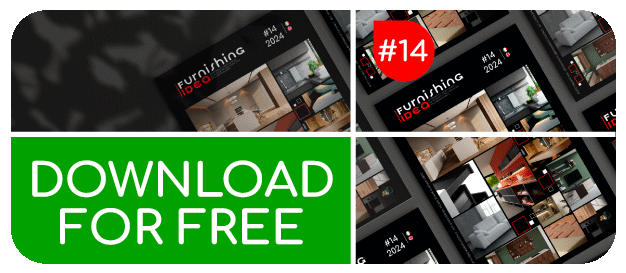
On 21 September, the Catas headquarters in San Giovanni al Natisone hosted the celebrations for the 30th anniversary of the CQA-Catas Quality Award, the product certification issued by the laboratory.
Thirty years of success of a certification that has a threefold value, as Catas director Franco Bulian emphasised: technical, because it is based on tests; objective, because the requirements are described by certification regulations and national and international standards; and finally, distinctive, because it immediately places the certified product in a prominent position compared to others.
To date there are 200 products certified by Catas, on the basis of specific and very strict criteria, in terms of formaldehyde emissions, paints, window and door profiles and 'Made in Italy' furniture.
"Catas has always been able to respond proactively and effectively to the needs of the Friulian, Italian and international manufacturing world," said Lucia Cristina Piu, President of Catas.
A QR code to track product quality
About fifty companies, both Italian and foreign, have chosen to certify their products with CQA, and many of them took part in the meeting at Catas not only to celebrate the anniversary, but also to learn more about the issues and qualities of CQA certification.
Lorena Riul, head of the CQA certification body, after retracing the most significant stages and emphasising the now globally recognised value of the mark, announced an important novelty that will be launched in the coming months: the possibility of accompanying the certified product with a QR code that will enable the user or end consumer to trace the quality of the product they are purchasing.
CQA-Catas Quality Award certification in the various sectors
The certification managers of the various sectors for which the institute issues certification, i.e. formaldehyde, paints, window profiles and 'Made in Italy' certification, then took the floor at the meeting.
Sandro Ciroi, contact person for certification activities related to formaldehyde emissions, emphasised how this subject is undergoing continuous evolution, with increasingly strict limits.
From paints for exteriors, in collaboration with the prestigious German institute WKI-Fraunhofer Institute for Wood Research, to paints for interiors, up to antibacterial paints: this is the path that Alessia Matellon, contact person for paint product certification, spoke about.
Simone Poletto, lamellar profiles certification referent, explained how the CQA-Catas Quality Award certification for lamellar profiles is a stimulus for "research" linked to experience, thus allowing companies in the sector to have concrete answers to their daily problems.
Finally, Marco Indovina, 'Italian origin of furniture by Catas' certification referent, pointed out that certifying the finished product is undoubtedly complex. Thanks to Catas' fifty years of experience, however, it was possible to arrive at the 'Made in Italy by Catas' certification scheme by fine-tuning a protocol that, for the first time, allows a direct relationship with the end consumer.
The future of certification
What can be the future of certification? This question was answered by Daniele Bergamasco, Catas deputy director, head of the chemical analysis department and CQA inspector, predicting that the new focus will be increasingly linked to the great theme of sustainability. "It is no coincidence that Catas is committed to LCA-Lyfe Cycle Assessment and volatile component emissions. So an increasingly 'green' context that is not just a façade, but supported by incontrovertible tests and values'.


 en
en  Italian
Italian French
French German
German Spanish
Spanish Portuguese
Portuguese









